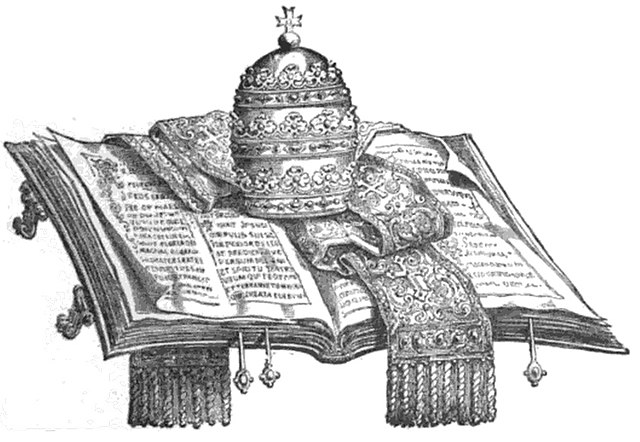Ultramontanism is a clerical political conception within the Catholic Church that places strong emphasis on the prerogatives and powers of the Pope. It contrasts with Gallicanism, the belief that popular civil authority—often represented by the monarch's or state's authority—over the Church is comparable to that of the Pope.
Pope Pius IX called the First Vatican Council
Cardinal Henry Edward Manning
1881 illustration depicting papal infallibility
Jansenism was an early modern theological movement within Catholicism, primarily active in the Kingdom of France, that arose in an attempt to reconcile the theological concepts of free will and divine grace. Jansenists claimed to profess the true doctrine of grace as put forth by Augustine of Hippo. In 1653, Pope Innocent X promulgated the bull Cum occasione, which condemned five errors attributed to Jansenism, including the idea that Christ did not die or shed his blood for all men.
Abbé de Saint-Cyran – Jean du Vergier de Hauranne, abbot of Saint Cyran Abbey in Brenne (1581–1643), one of the intellectual fathers of Jansenism.
The title page of Augustinus by Cornelius Jansen, published posthumously in 1640. The book formed the foundation of the subsequent Jansenist controversy.
La mère – Marie Angélique Arnauld (1591–1661), abbess of Port-Royal-des-Champs.
Antoine Arnauld (1612–1694), became the leader of the Jansenists following Vergier's death in 1643.







